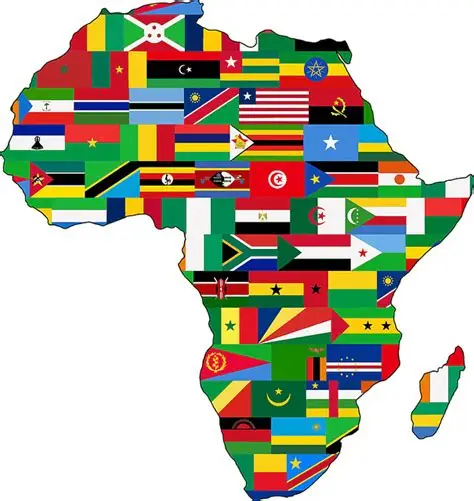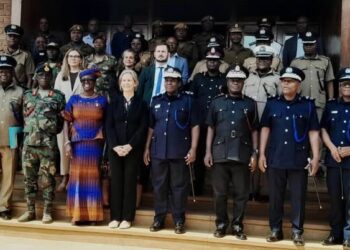To understand Africa’s current situation, we must first ask: Where did we come from, and what moral compass guided us before outside influences altered our course?
This article aims to explore a lesser-discussed aspect of Africa’s historical decline; the moral disorientation that began when foreign values replaced indigenous systems. It is not a lament for the past but a call to revisit our moral roots to understand why, despite its abundant resources, the continent still struggles with development, governance, and unity.

Looking Back to Move Forward
Today, Africa grapples with many visible and invisible deficits, ranging from poverty and broken infrastructure to corrupt leadership and fractured institutions. The signs of struggle are present everywhere. Yet, Africa is not inherently poor; it is rich in resources, overflowing with human talent, and strategically positioned. So why does chronic underdevelopment persist?
Some attribute this to divine will, while others point to colonial legacies, leadership failures, or internal contradictions. While these perspectives are valid, we must also delve deeper: What role did the destruction of our moral foundations play in this journey?
To understand Africa’s trajectory, we need to revisit the past; not just to critique colonialism but to uncover the principles that held African societies together prior to European rule. Before the so-called “civilized” arrived, Africa had its own social systems, political structures, and, importantly, moral frameworks. While not perfect, these systems were functional, dignified, and deeply communal.
The Silent Pillars: Oral Traditions and Indigenous Ethics
Unlike the Western world, much of Africa relied on oral traditions to preserve knowledge. Values were conveyed through songs, proverbs, folktales, taboos, and rituals. These were not merely entertaining stories; they served as binding moral codes that shaped relationships among people and between them and their gods.
Despite the continent’s vast ethnic diversity, consistent core values emerged; especially concerning justice, honesty, and communal responsibility. Broadly speaking, Africans had strong aversions to theft, deceit, and the abuse of power. They did not idolize rulers; rather, they judged their leaders by their moral conduct.
Take the Igbo people of present-day Nigeria as an example. In traditional Igbo society, stealing was more than a crime; it was a moral transgression that shamed not only the thief but also the family and the village. Public disgrace, banishment, and ritual cleansing often followed transgressions.
Even more strikingly, anyone who aided or concealed a thief was equally condemned. Morality was a collective affair. Since life was believed to unfold under the watchful eyes of the gods, every action, especially political or economic, had spiritual consequences.
Leadership, therefore, was considered a sacred duty. Leaders were expected to embody justice and serve with integrity, rather than exploit their people. To rule corruptly invited the wrath of the gods and jeopardized the well-being of the land.

When the Moral Order Crumbled
Then came the so-called civilized Europeans. With their ships, guns, and bibles, they did not merely colonize land; they colonized values. They labeled African ways as backward and imposed their systems, sometimes with brutal force, other times through alluring incentives.
Africans did not seek to be civilized; it was a project imposed upon them without consent or context. Governance and commerce, once sacred and transparent, became tainted with deception and coercion.
The colonial model introduced a new moral standard where lies, bribery, and manipulation became normalized. African leaders, selected or supported by the colonial apparatus, were trained not in moral leadership but in control and compliance. Over time, these behaviors trickled down and became the norm.
Where elders once upheld justice, now elites brokered favoritism. Where gods once sanctioned leadership, foreign approval or economic advantage defined power. The result was a gradual but steady erosion of Africa’s moral backbone.
Reclaiming the Past Without Romanticizing It
It is important not to romanticize pre-colonial Africa, which had its own flaws, including intra-tribal conflicts and injustices. However, it is equally dangerous to disregard the moral clarity and community accountability that once characterized our societies.
Today, Africa suffers not just from policy failures or leadership gaps; there is a profound moral vacuum. A continent that once revered truth now often celebrates manipulation. Where leaders once feared divine retribution, many now feel no consequences for their actions.
To reclaim Africa’s future, we must first reclaim its moral imagination. This is not a call to reject modernity or romanticize the past; rather, it is a call to remember that our ancestors built civilizations without corruption, governed without tyranny, and lived with dignity.

Conclusion
History is not merely a record of events; it serves as a reflection of our values. For Africa to forge a new path, it must start with an honest assessment of how its moral compass was altered, distorted, or replaced. The future will not emerge from imported systems or borrowed ideologies; it must develop from within—through a renewed sense of integrity, community, and responsibility.
Africa’s destiny is not solely political or economic; it is deeply moral. This is where the healing must begin.







